Never Bring These Plants Into Your Home If You Have Pets
This greenery could be toxic to small animals, so be cautious.
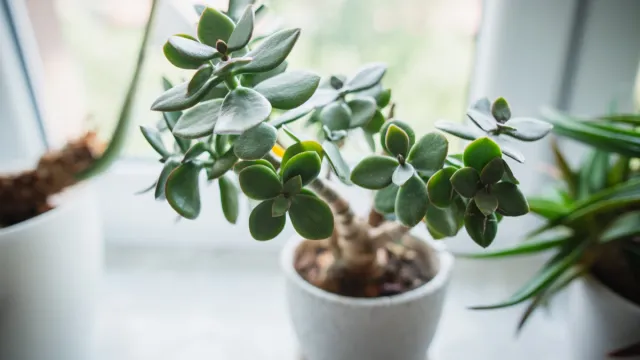
Plants are the perfect piece of decor to add some color to your space and liven up any room. It's not just about aesthetics, though. Plants have a number of benefits, from calming your mood to improving air quality. But that doesn't mean all greenery is created equal: There are a handful of common house plants that can be toxic for your pets. Read on to make sure you're keeping your furry friends protected by not purchasing any of these for your home.
RELATED: If Your Dog Is Playing With This, Take it Away Immediately.
1
Aloe vera
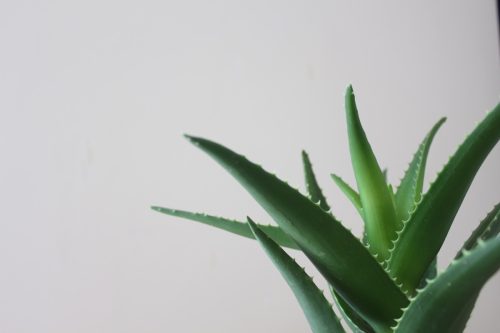
Leslie Vincent, expert horticulturist at Atkins Garden Centre, warns that the aloe vera plant—while great for soothing human skin—could be harmful to pets. "The saponins (naturally occurring compounds) found in this succulent can actually cause tremors, central nervous harm, vomiting, and diarrhea" for pets, she explains. According to the Pet Poison Helpline, aloe vera can also result in depression, anorexia, and changes in urine color.
RELATED: If You See These Flowers in Your Yard, Don't Go Near Them, Officials Warn.
2
English ivy
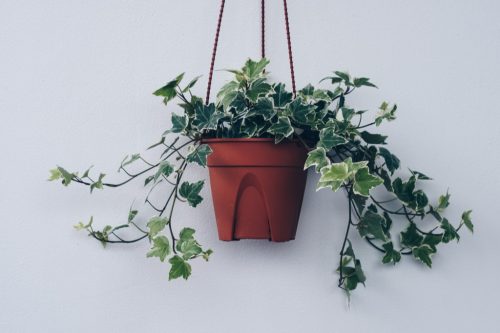
As humans, we know the uncomfortable blotches and irresistible itches that arise after contact with poison ivy. Pets can have a similar (if not worse) experience with English ivy. "Ivy can lead to rashes for canines, and if consumed, it can actually lead to breathing problems or even paralysis," Vincent says. According to the American Society for the Prevention of Cruelty to Animals (ASPCA), pets that come in contact with English ivy may also experience vomiting, abdominal pain, hypersalivation, and diarrhea.
3
Philodendrons
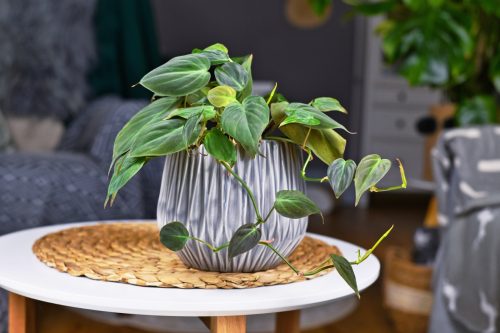
Philodendrons are popular indoor plants because they don't require direct sunlight. However, Vincent warns that these plants "contain a very specific form of insoluble calcium oxalate crystal, which can cause irritation in a dog's mouth." Per Pet Poison Helpline, after contact with these plants, your pet could show symptoms such as drooling, pawing at the mouth, oral pain, decreased appetite, and vomiting.
4
Elephant ear
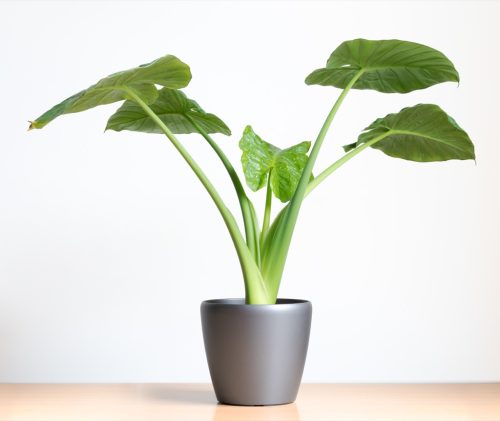
Elephant ear plants are highly desired for their big, beautiful leaves. But when a pet interacts with it, the plant produces a reaction similar to the philodendron. According to the Pet Poison Helpline, these plants contain insoluble calcium oxalate crystals. If your pet chews or bites an elephant ear, the crystals will be released, "causing tissue penetration and irritation the mouth and [gastrointestinal] tract." Pets may then experience the same symptoms as those from the philodendron.
RELATED: For more pet advice delivered straight to your inbox, sign up for our daily newsletter.
5
Lillies
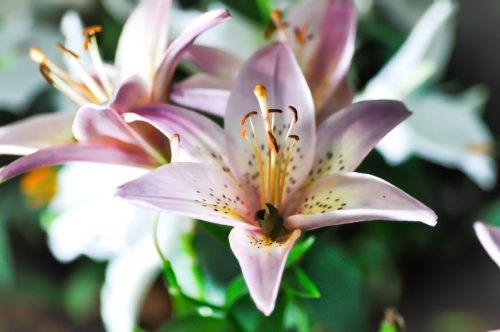
Linda Simon, MVB, MRCVS, consulting veterinarian with FiveBarks, says that in her work as a veterinary surgeon, she often sees toxicities in pets after an owner has been gifted lilies. While lilies can be harmful to dogs, they're even more dangerous for cats. "Lilies are highly toxic, especially to cats. True lilies such as the Stargazer lily, peace lily, and Asiatic lily are some of the most toxic," Simon says.
"Cats can become unwell from eating any part of the plant or even from drinking the water from the vase. Another issue is that the pollen can drop onto the cat, and they inadvertently lick it off when grooming," Simon adds. She notes that signs a cat has come in contact with a lily include lethargy, excessive thirst and urination, and vomiting. "These signs occur because the kidney is failing. Immediate veterinary care is needed, and many cats will pass away if not treated promptly," she continues.
6
Jade
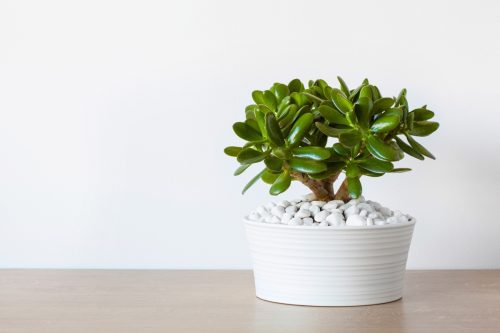
Jade plants are often found potted atop a table in homes. However, the ASPCA notes that these glossy plants can be toxic to pets. Contact with this plant could cause your pet to experience vomiting, depression, and incoordination.
7
Sago palms
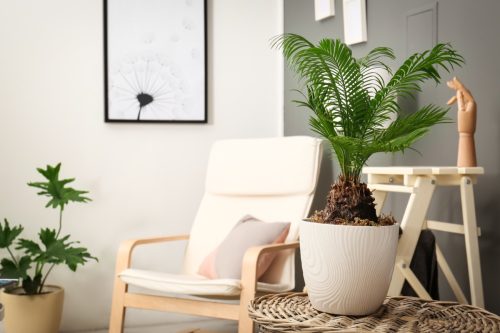
Sara Ochoa, DVM, veterinary consultant for doglabs.com, says that tropical-looking sago palms can be very toxic for your pets, especially dogs. In her own veterinary office, she sees these plants "causing issues in dogs at least once or twice a year." According to Ochoa, these plants "can be very deadly and cause a dog to have liver failure. Many people do not even know that these are toxic and keep them in the yard." Per VCA Animal Hospitals, "depression, drooling, vomiting, and diarrhea may be the first signs of poisoning."





















